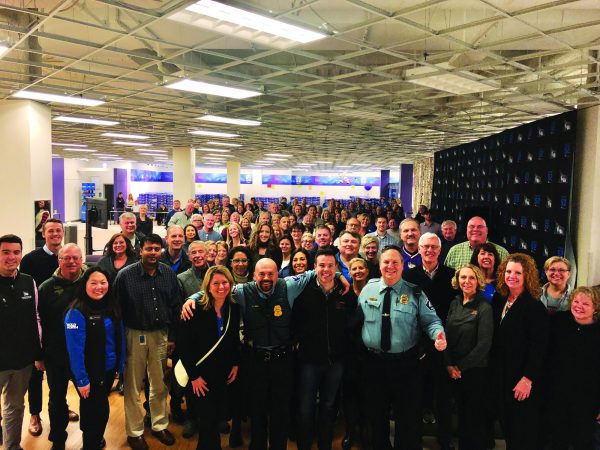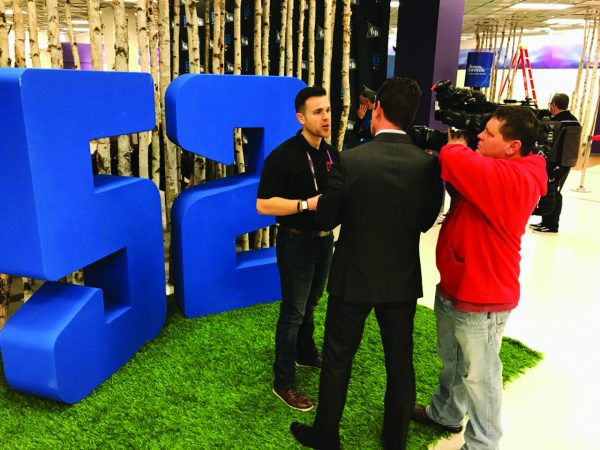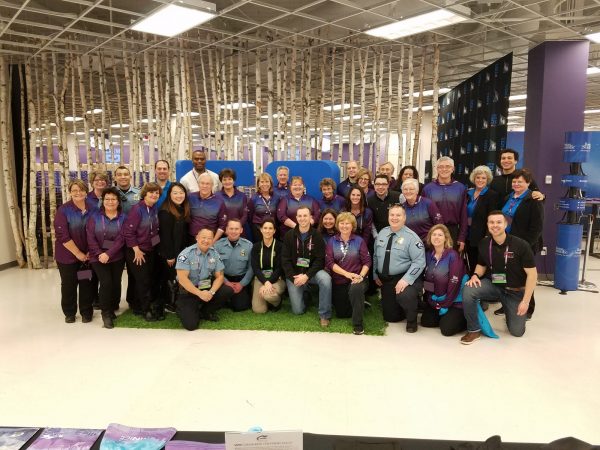Jordan Clark, who trains people how to recognize warning signs of possible terrorist or criminal acts on social media and in other settings, says he owes much to Colorado State University — including the email from an advisor that led directly to his current job.
Clark (B.A. '11) is an assistant director at the Denver-based Counterterrorism Education Learning Lab (CELL), a nonprofit, nonpartisan organization dedicated to preventing terrorism through its downtown Denver exhibit, renowned speaker series, and public safety training initiatives. Clark is in charge of the latter, the CELL’s “Community Awareness Program,” which has been certified by the Department of Homeland Security.
The CELL worked with Minneapolis police officers to train more than 16,000 volunteers how to recognize and report suspicious activity when the city hosted Super Bowl 52 in 2018. Closer to home, the CELL has trained Colorado Rockies staff and Denver PrideFest volunteers. Clark has built partnerships with fusion centers, law enforcement, and public safety officials to help customize trainings for personnel at schools, international events and venues, and municipalities on critical prevention and preparedness efforts. Clark also has established partnerships with numerous representatives of the national security community to train more than 74,000 members nationwide in the program.
Clark, who double-majored in international studies and political science with a minor in Spanish, says there are common warning signs of a pending terrorist or criminal act. Online or in social media, for instance, he says it’s important to look for messages that promote or threaten violence against organizations or individuals. People should also be on the lookout for out-of-the-ordinary “information-gathering” before an event, such as inquiries about the number of security officers present or where undercover police will be stationed.
“Your average person would not be curious about that,” Clark says.
Other indicators that he cites include people testing the security of a venue by trying to open doors and determining staff response times — or trying to gain access to the site of a major sporting event, such as a cycling racecourse.
Protected speech
Clark also stresses the importance of differentiating between free speech and threats of violence.
“People can be espousing hate, but if they’re not threatening violence, it’s difficult for law enforcement to take action, because it’s protected free speech,” he says. “It’s very important for us to protect those civil liberties. We are not profiling anyone on the basis of race, gender, sexual orientation, nationality or religion.”
And what should someone do if they see a warning sign? According to Clark, if it’s an emergency — a direct, imminent threat — call 911. Otherwise, he recommends calling a local law enforcement agency’s non-emergency line, or the Colorado Information Analysis Center at 877-509-2422.
“If you see something, say something,” Clark advises. “We’d rather have people report something to authorities and have it turn out to be nothing than to miss signs that could prevent an attack.”
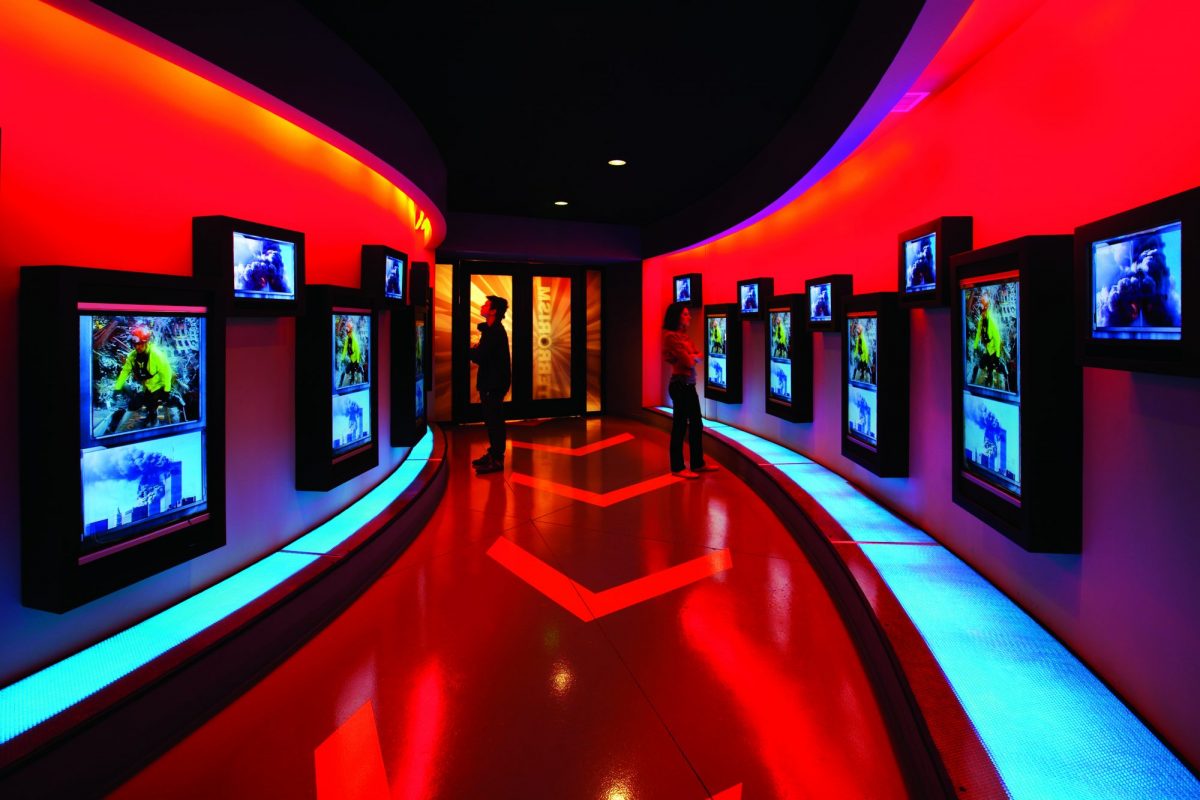
Other tech threats
He explains that for terrorist groups like ISIS, technology has become a key tool for radicalizing and recruiting terrorists worldwide. In the past, terrorist groups depended on a network of operatives that they would have to train, fund and communicate with, directly or in person, to carry out their attacks, Clark says. But today, terrorist groups are able to rely on a decentralized network of self-radicalized individuals around the globe to conduct their attacks, which presents a challenge to law enforcement and underscores the importance of reporting suspicious indicators. Clark explains that ISIS revolutionized this strategy through an unprecedented online campaign via social media, its digital magazine, Dabiq, and tens of thousands of online videos.
In addition, cyberattacks are an ongoing challenge. In March 2018, hackers targeted the Colorado Department of Transportation’s infrastructure around its business operations, freezing the system and demanding Bitcoin in exchange for control of the system. This attack affected nearly half of CDOT’s computers and caused more than $1 million in damage. The cyberattack prompted Colorado to declare a state of emergency to activate the Colorado National Guard. It was the first time in U.S. history that a cyberattack has prompted such a declaration.
“This is the new world of digital destruction,” former U.S. Department of Homeland Security Secretary Kirstjen Nielsen said in August 2018. “Cyberattacks against our critical infrastructure — the energy grid, emergency services, telecommunications, the financial services sector and more — have the potential for catastrophic effects disrupting our very way of life.”
These threats are covered in the CELL’s various trainings as a way to inform the public on different ways technology can be harnessed by terrorist groups.
CSU experience
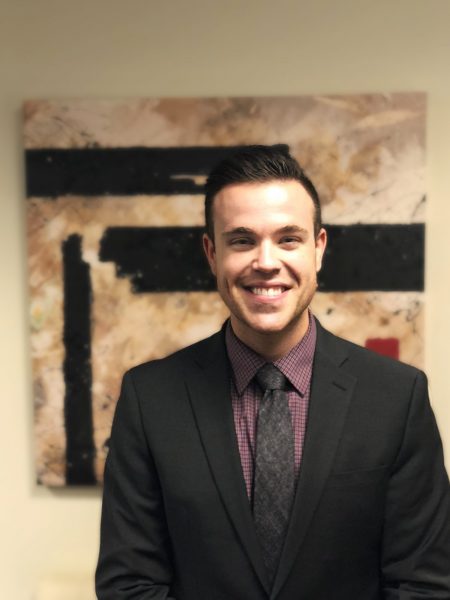
Clark says his time at CSU prepared him well, not only for his professional pursuits and current job, but also his community involvement.
He participated in the Key Academic Community both as a student and mentor, the Student Alliance for Gender Education, The Men’s Project and the Student Leadership, Involvement and Community Engagement office. Clark served as a resident assistant and had an alternative spring break in Washington, D.C., where he spent a week living like a homeless person, staying in shelters, eating in soup kitchens, conducting community service and learning about governmental efforts to reduce homelessness and unemployment rates.
“It was an incredible educational and eye-opening experience,” he says.
Study abroad
Clark also studied abroad in Spain through the Alcalá de Henares semester-long educational program.
“That semester was so impactful, to be on the ground and immersed in the language and culture,” he says. “The skill set I received helped me with problem-solving and provided me with an unparalleled appreciation for cultures and communities across the globe. I really feel like my whole experience at CSU empowered me with incredible resources to serve others and make a positive impact in our communities every day.”
After graduating from CSU in 2011, Clark stayed in touch with one of his advisors, Elizabeth Terry-Emmot, director of the College of Liberal Arts Academic Support Center. One day she sent him and other alumni an email with employment opportunities, including an internship at the CELL. Clark applied, got the position, and has worked there ever since.
“I’m very, very appreciative of the connections and relationships I made and still have to this day,” he says.
Now Clark is serving as a mentor and resource for current international studies majors at CSU who are seeking career advice.
“I’m so grateful and honored to be a Ram and be part of the CSU community,” he says. “Those educational opportunities were invaluable, and the faculty were incredible mentors in my academic pursuits. It was a perfect fit for where I am — and where I am going.”

